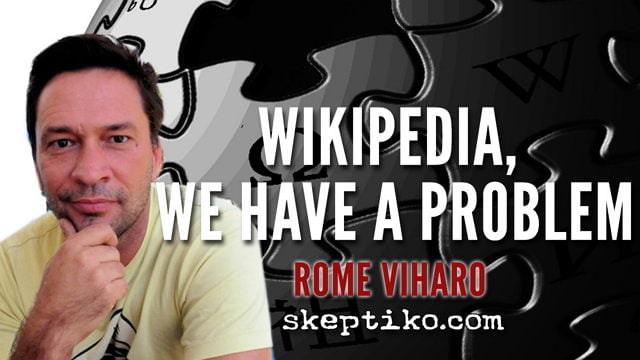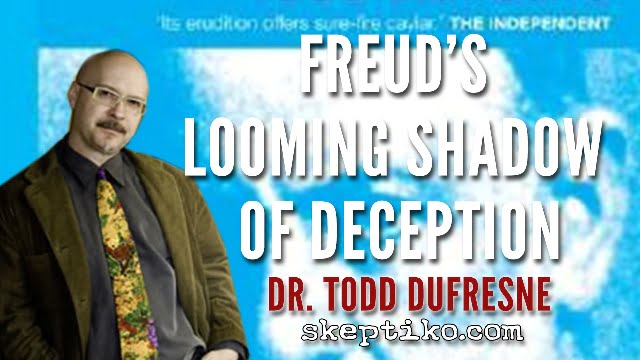Click here for YouTube version Click here for forum discussion Interview with neurophilosophy expert Dr. Patricia Churchland reveals a lack of understanding of near-death experience science. Join Skeptiko host Alex Tsakiris for an interview with University of California, San Diego philosophy professor Dr. Patricia Churchland. During the interview Dr. Churchland seems flustered over questions about near-death experience science: Alex Tsakiris: Yeah, but I think we also have problems with the idea that consciousness is an emergent property of the brain thing? I interviewed Christof Koch from Cal Tech last year and he’s the guy who I sent people down this direction that we can no longer claim that consciousness is a product of the brain and we have to move towards this middle position where as he says, consciousness is ontologically distinct, but never really defining how consciousness begins, how consciousness ends, or exactly what the relationship is with the brain. I think a lot of people are more comfortable with Daniel Dennett and Richard Dawkins’ okay, consciousness is an illusion than they are with this middle ground. I don’t really know how that answers the big questions of what the nature of consciousness is other than just to repeat that consciousness is something that the brain does. That doesn’t tell us much. How does it begin? When does it end? What’s necessary and sufficient to cause consciousness? These are all questions that are unanswered by what you’re saying. Dr. Patricia Churchland: Well, neuroscience hasn’t got all the answers yet. Alex Tsakiris: But that’s just passing the buck. We don’t have the answers. Those are fundamental questions. If we don’t have the answers then we don’t have a theory of what consciousness is, right? Dr. Patricia Churchland: That’s what your view seems to be, all right. Alex Tsakiris: I’m just saying these are basic. When does consciousness begin? When does it end? What is necessary and sufficient to create consciousness? If we can’t answer those then what do we really have? What can we really say about consciousness? Dr. Patricia Churchland: Well, I guess we can’t say anything. Alex Tsakiris: Okay. I think we can say some things. Let me ask you this—I didn’t mean to throw you completely off. Do you want to get back to talking about your book? Dr. Patricia Churchland: No, not really. Alex Tsakiris: Okay. What do you think about near-death experience? You write quite a bit about that in your book and what is your general take on near-death experience? Dr. Patricia Churchland: Well, I’m not sure that it really matters, does it? What does it matter for? Alex Tsakiris: I think a lot of folks look at near-death experience as highly suggestive of consciousness somehow, in some way we don’t understand, surviving biological death, which would certainly falsify that other idea that it’s so tied to the brain and that consciousness ends at death. I mean, that would falsify that, right? Dr. Patricia Churchland: Oh, I’m sorry. My dog just came in. No, no, don’t do that. No, no, no, no. Forgive me, I’m sorry. Okay. So yeah, okay, I guess I’ve never have actually had a near-death experience. Have you? Alex Tsakiris: No. Dr. Patricia Churchland: Oh, okay. Alex Tsakiris: But you write quite a bit about it in your book. Dr. Patricia Churchland: So why do you want me to talk about it? Alex Tsakiris: Well, I guess one of the things I did want to ask you is in your book you ask the question, “Is there a neurobiological explanation for near-death experience?” Then you cite NDE researcher and a former guest on this show as answering that question with yes. You say that Dr. Pim Van Lommel believes the answer is yes. Is that your understanding of his research? Dr. Patricia Churchland: Well, I think there’s certainly quite a bit of evidence that at least some near-death experiences have a neurobiological basis. Of course, we can’t be sure about all of them. Maybe you had one that doesn’t have a neurobiological basis. I wouldn’t really know, would I? Alex Tsakiris: Well specifically, Dr. Churchland, you cite in your book that Dr. Pim Van Lommel holds that opinion. That’s clearly not the case. I mean, he’s written… Dr. Patricia Churchland: Has he? Uh-huh (Yes). Alex Tsakiris: Right. Do you want me to read to you what he’s written? He’s written that “The study of patients with near-death experience (and this is from The Lancet paper that you’re citing) clearly shows us that…” Patricia Churchland's Website Listen Now: Download MP3 (25 min.) Read It Welcome to Skeptiko, where we explore controversial science with leading researchers, thinkers, and their critics. I’m your host, Alex Tsakiris, and for this episode of Skeptiko I almost feel like I need to issue one of those warnings that they put on the front of shows that have content that might be inappropriate for some viewers. You know, I’m always surprised when people are squeamish over confrontation, conflict, or debate of any sort. I get that on one level. We don’t want to see people squirm and we want everyone to be nice to each other and all that. I get that. But on another level, I want you to consider that in this interview with Dr. Patricia Churchland, who I’ve really been trying to contact for years. I have emails going back several years in which I tried to contact this woman. She is a well-respected academic, Oxford educated, also UCSD which is a prestigious university out here in California, highly regarded at conferences, gives speeches, and has blabbed about these ridiculous ideas about consciousness that she has.
...Month: January 2014
236. Rome Viharo, Wikipedia, We Have a Problem
click here for YouTube version click here for forum discussion Interview with social media expert and Wikipedia critic, Rome Viharo exposes...
235. Dr. Todd Dufresne on Freud’s Looming Shadow of Deception
Click here for YouTube version Click here for forum discussion Interview with the Dr. Todd Dufresne examines Sigmund Freud's deception and...








